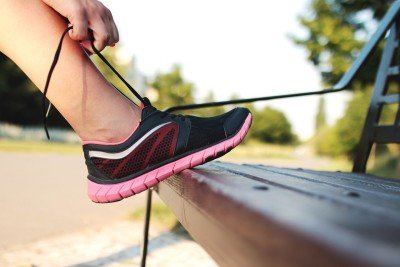
Competitive athletes have a lot on their plates. They constantly have to give their best during competitions, work tirelessly to improve their skills and may even feel pressured to remain a certain weight or maintain a specific body type. Unfortunately, some teen athletes develop an eating disorder as a way of dealing with stress and maintaining their physique.
The Link Between Competition and Eating Disorders
Studies have found that there is a strong and consistent link between eating disorders and weight-sensitive sports such as running, wrestling, swimming and gymnastics. In fact, research has shown that competitive athletes are nearly three times more likely to have an eating disorder as the average person.
The reasons that competitive athletes develop eating disorders depend on the type of sport they are involved in:
- In endurance sports such as running, athletes rely on leanness for ultimate physiological performance.
- In weight category sports such as boxing or wrestling, athletes can be disqualified if their weight goes above the upper limit for their category.
- In sports such as gymnastics and swimming, there is an aesthetic component to the competition that encourages competitors to look a certain way.
These reasons drive athletes to find a way to meet their sport’s requirements and often eating disorders are developed out of a desire to excel in competition.
Signs of Eating Disorders to Watch For
It can be very tricky to identify an eating disorder in a teen athlete, especially since some eating disorder symptoms such as dieting and weight loss may be misperceived as normal or commendable in the sport environment. However, there are signs to watch for if you suspect a teen may have an eating disorder. These signs include:
- preoccupation with one’s body weight, shape or size
- excessive concern about calorie intake
- decrease in athletic performance
- frequent meal avoidance
- continuous denial of hunger

Image Credit: Unsplash
Education is Key in Preventing Eating Disorder
Sports should be a source of physical activity, fun and fitness—not the cause of a debilitating illness. Prevention is the best way to stop an eating disorder before it starts, and prevention starts with a proper education.
Athletes and coaches alike should know the dangers of eating disorders and coaches especially should know how to spot the warning signs of an eating disorder in an athlete. Some parents may find it helpful to make an appointment with a nutritionist so that their teen can learn why eating well is so important for a body that’s constantly undergoing strenuous activity.
There is a strong connection between competitive sports and eating disorders due to a strong focus on body types, weight and physique. If you’re worried that a teen you know may be struggling with an eating disorder, encourage them to contact a professional for help.
Feature Image: jeshoots


